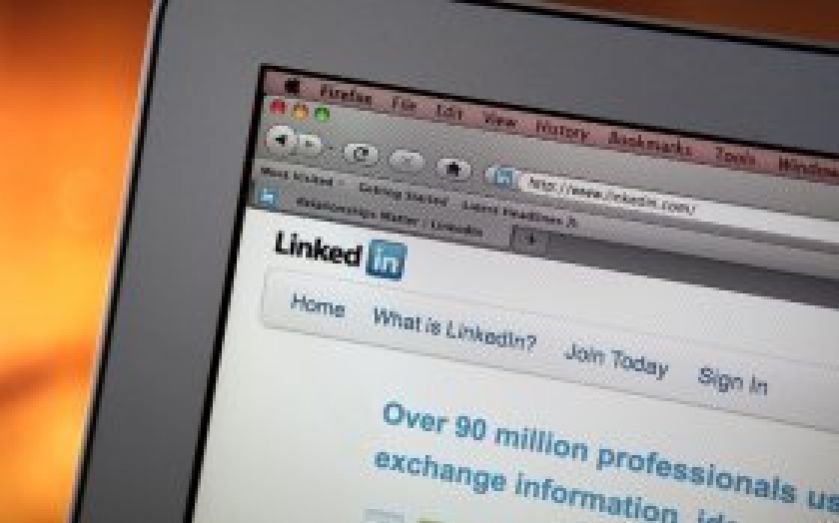| Updated:

Sir Keir Starmer should spend more time clicking away on the world’s most insincere website, according to Michael Martins, founding partner of Overton Advisory
Starmer should spend more time on LinkedIn
Labour’s first successful International Investment Summit under Prime Minister Starmer yesterday has garnered all the right headlines. Tens of billions of pounds in investment were announced, alongside the involvement of major global players like Microsoft, whose UK CEO will chair Starmer’s new Industrial Strategy Council.
While these are commendable achievements and will surely be a boon to the UK’s economy, there remains a growing sense of unease amongst some of the UK’s smaller, more domestically-minded business community, as any ten-minute scroll through Linkedin will show you.
During my morning scan of my Linkedin newsfeed yesterday morning, I came across several founders from smaller companies anxious about the upcoming tax rises and posting remarkably frank assessments. Some of the more colourful posts came from Basecamp’s founder, who said “the UK is finished”; Wild Dose’s founder, who put it another way – “the moment [Wild Dose] does well I will be f**ked by tax” – and Craftd’s founder, who said “the potential version of the future UK worries me immensely”, have received thousands of likes. As these companies collectively employ hundreds of people, it is clear that the PM’s pro-growth message has not landed as well amongst some of the UK’s smaller firms compared to the Davos set.
So as the 30 October Budget nears, Starmer should listen more closely to some of these local bosses, who are usually positioned as the backbone of the British economy, as well as centre-left policy outfits like the Resolution Foundation, whose former head, Torsten Bell MP, is now at the heart of government. The Resolution Foundation has long argued that prioritising investment and employment incentives will drive economic growth and investment.
With the Conservatives in disarray and a 166-seat working majority, Starmer can act to implement the long-term reforms necessary, but his focus must shift to fostering a business environment that promotes domestic growth and international investment, rather than making it harder for small firms to hire and investors to invest.
Yet another passport
New European Union supply chain transparency rules, called digital product passports (DPPs), will shortly come online in the Eurozone. DPPs mandate that consumers be able to see where all their goods’ components have been sourced from. While Brexiteers cry ‘protectionism’ and Labour MPs applaud ‘transparency’ and ‘sustainability’, in the trenches of business, some forward-looking companies like Tesco and NBC Universal have saved the airfare to Brussels, and opted for British-born talent, taking on firms like Fabacus to prepare. The new government should take note as they renegotiate the UK’s trading relationship with the EU.
Stansted gets a glow up
My nearest and most accessible airport, Stansted, also happens to be my favourite, so I count myself lucky that yesterday they announced £1.1bn in new investment including, among other important things like more shops and bars, a new business lounge, which is my preferred way to mentally prepare for longer or more bumpy flights. Now all that I need is for them to resurrect their on-again-off-again London to New York route and all will be right in my travelling world.
The RAF deserves better this Budget season
The war in Ukraine has demonstrated the importance of air superiority. I was, therefore, shocked to discover that the Ministry of Defence spends tens of millions outsourcing our domestic fighter pilot training to the Italian government. With the Budget around the corner, Chancellor Reeves and defence secretary Healey should divert some of those funds destined for Italy to a homegrown talent like Bristol-based AERALIS, which says it can do it at a fraction of the cost (and in areas where Labour lost vote share at the election, to boot).
Binge after Fringe
I spent World Mental Health Day at a private screening of a new play called Binge written by Peter Caulfield of Doctor Who and EastEnders acclaim. Caulfield and Harriet Webb (currently in Big Boys on Netflix and Mr Big Stuff on Sky) lead as main characters dealing with the devastating fallout of losing a dear friend through ambiguous circumstances, where they are forced to look back in time, ‘bingeing” on past messages, voice notes, and whispered asides, to understand why they suddenly disappeared.
Set against the backdrop of the Grenfell Tower tragedy, the play alternated between episodes of gut-wrenching sadness and relief-infused joy and left me reeling days later. Set to return to Park Theatre next month, now is the time to queue.



